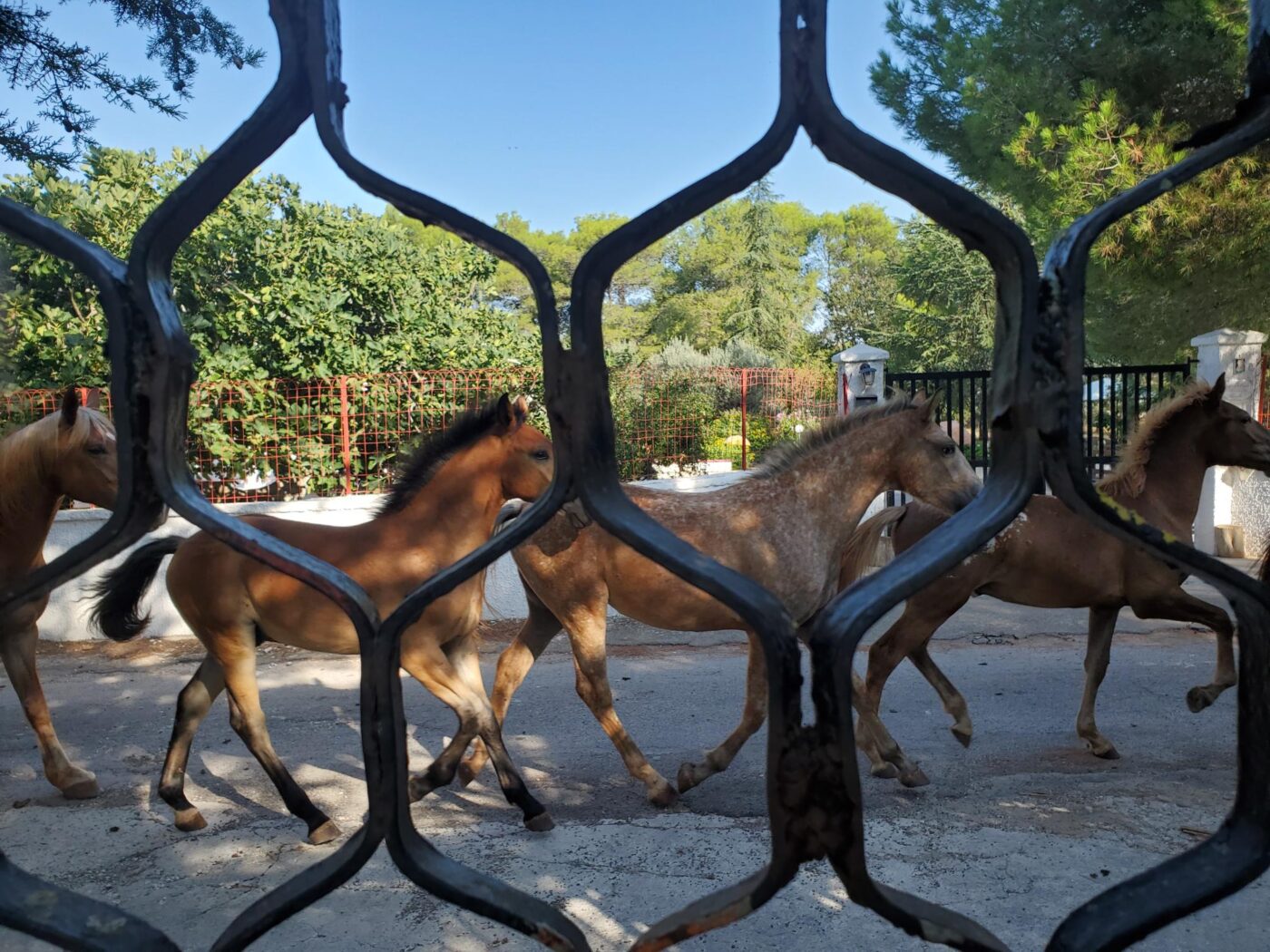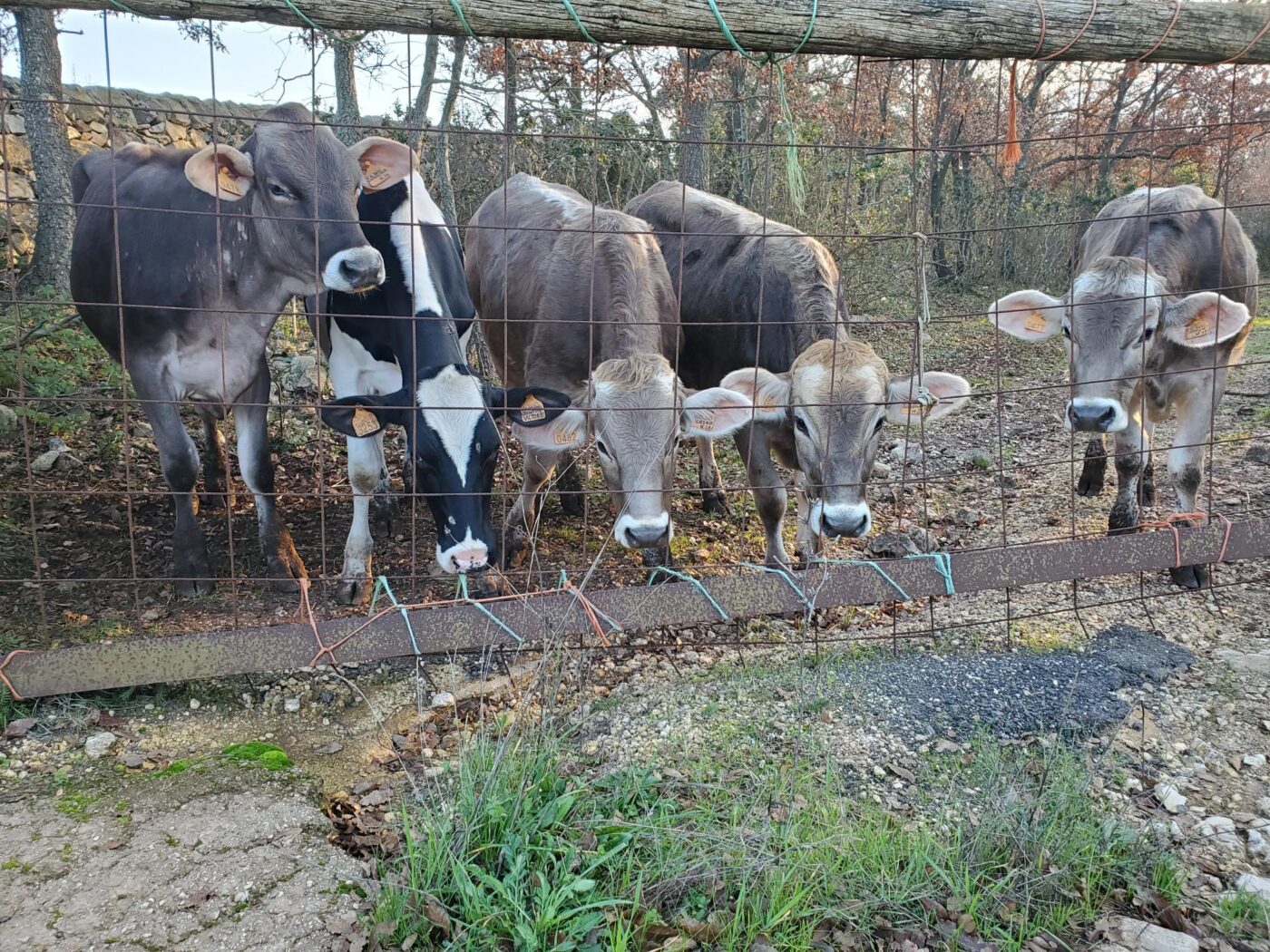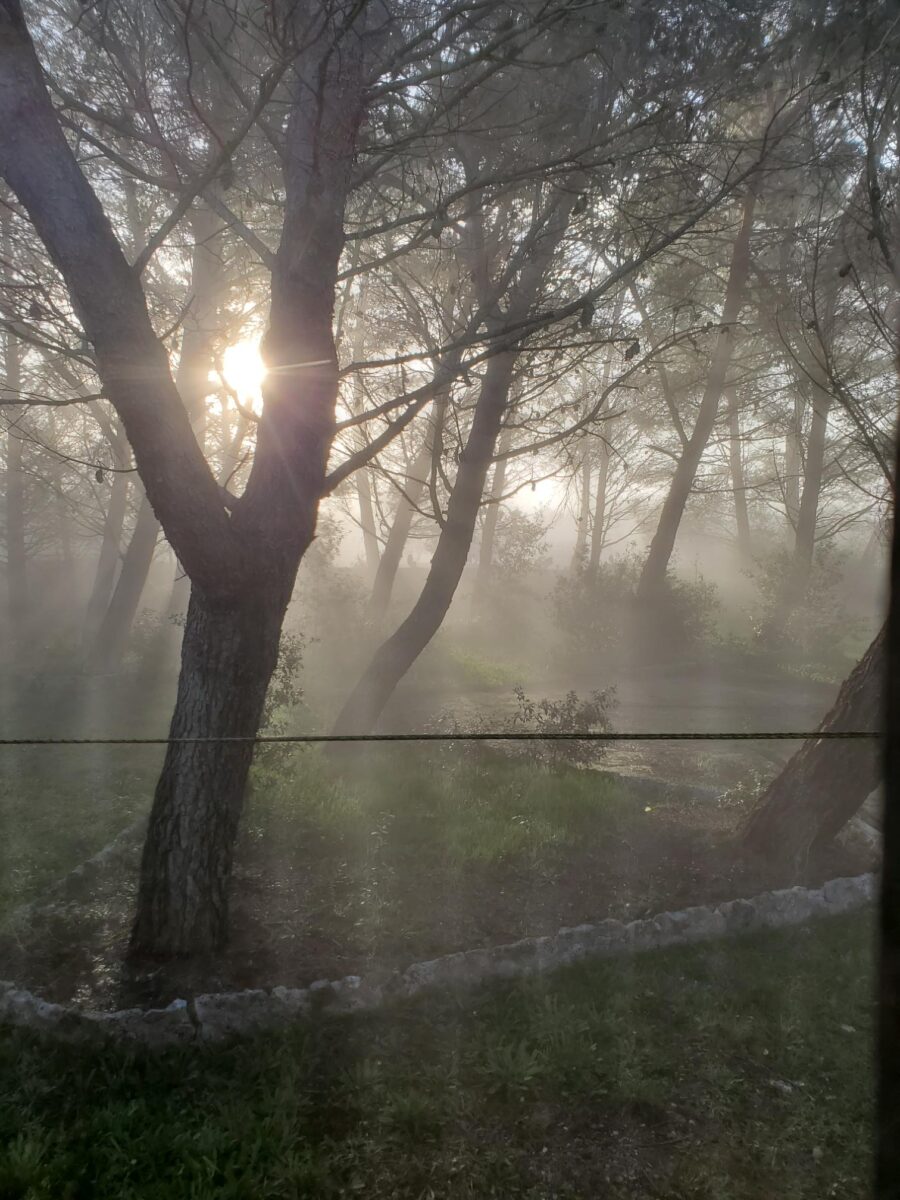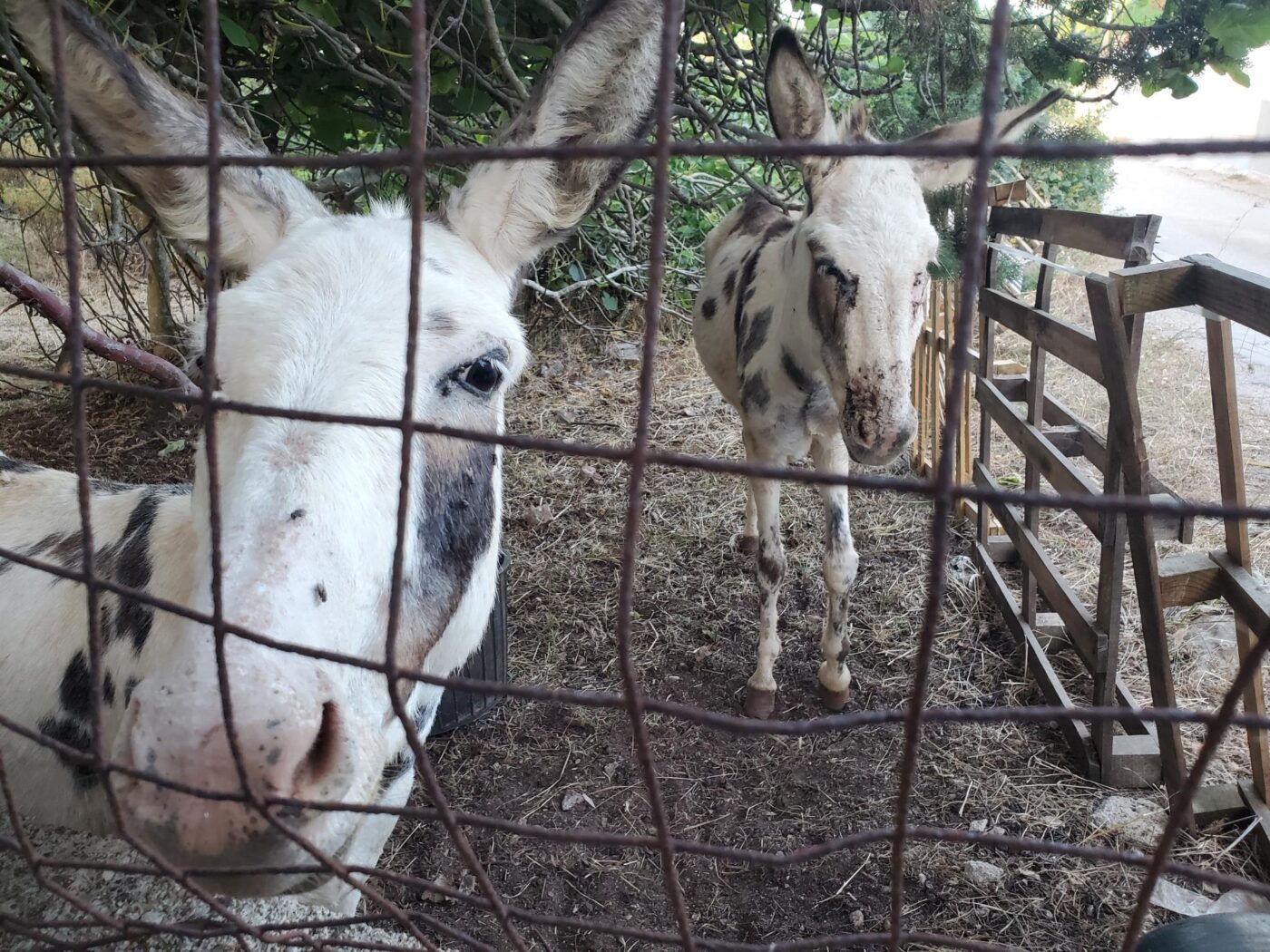ANIMAL FARM
It takes some getting used to, and I haven’t yet, but the animals in the countryside of Puglia come and go as they please
At first, right outside the gate to our driveway on a recent morning, I heard the clippety-clopping. Clearly the sound of a horse cantering past on the rutted asphalt road in front of our house. But then the clippety-clopping grew louder. So I went outside to see what was going on.
First one horse trotted by, then another, and now a third. Then more came along, one right after another, a half dozen quickly turning into at least a full dozen, suddenly hard to keep count. The hooves clopping briskly along sounded almost symphonic.
But here’s what most held me spellbound. All of these horses had shown up by themselves. No one was tending to the herd. Unbridled, the horses appeared to have acted independently, free agents in the wild.
They commenced to graze in the field next door to our house. They grazed only a few feet away from me, so close I could hear the chomping, the gnashing of teeth in the grass. Our dog Dahlia barked in protest at the intrusion, and a few of the horses, spooked, bound away rustling through the trees and underbrush.
Minutes later, the horses moseyed over to the next field and nibbled some more. Eventually they left, going back down the road as they had come, still without any person in charge. I watched the whole spectacle amazed, half-certain that I was dreaming it. But I took some photos as proof.

So it has gone out here in the Pugliese countryside. I’m living among animals, sharing the space here, a new experience for me. It’s mostly farmland here after all, so we’re talking mostly livestock.
Some months back, my son Michael and I took a new road that led from the main road into town. We walked past about a dozen houses, some with barking dogs behind gates, and then along a long stretch with no houses at all, unsure where it would go. Then we heard the mooing.
“That sounded like mooing,” I said.
“To me, too,” Michael said.
We spotted a house with some trulli, dry stone huts with conical roofs, at the end of the road. From the distance we could see cows milling about. I came to this dead-end several times previously without Michael, looking for the cows, mostly without any luck. But this time they must have emerged from the main pen. They came right up to the fence along the road, five in all, huge, docile, silent. Our dog Dahlia took an immediate interest and inched close for a whiff.
On another occasion, I again went for a walk with Dahlia and came across cows. They were on the main road, at least a dozen or so, forcing cars that came along to go around. I hastened my pace to stay well ahead, unwilling to accidentally provoke the cows into a stampede. A strange feeling walking along a road followed by cows on the loose, certainly unlike anything I’d known back on the streets of New York City.
But again, that’s life here. It’s a profile in co-existence, each species trying to claim the land as its natural habitat.
One day, walking along that main road, I spotted a curious object along the grass. It was a jawbone. It had at least 20 teeth and ran more than a foot long. I posted a photo on Facebook and asked someone to identify it. Was it a mastodon? Some insisted it was a sheep, others a donkey. A close friend ventured, no doubt jokingly, it might be a T-rex.
I entertained all theories. But the consensus that came through concluded the jawbone was from the skull of a boar. This find, too, qualified as unique in my experience. Wild boar jawbones are rare on Queens Boulevard in Forest Hills in NY, where I lived for 44 years.
Clearly I’m well out of my element here, outnumbered by the animals in our neighborhood. As a matter of policy, I play dumb and pretend I belong to keep the peace.

Only a few days ago, a new episode unfolded. Two fields over from our porch, I saw a sight I never expected to see. At first, off in the distance, I noticed only a furry tail swishing. Then ears twitching. Donkeys had materialized in a meadow to graze at leisure.
Typically such noshing goes on only for an afternoon. But the donkeys reappeared day after day for almost two weeks. I went out on the porch in the early morning and saw the donkeys already chowing down on breakfast.
It was an image that gave me peace. The donkeys were in no hurry. They were going through life unburdened by credit cards and wire transfers and other responsibilities. I might have felt a twinge of envy here and there, but then it passed as soon as I realized that, all in all, I’d rather be human than a donkey.
Soon after I arrived here, our family was driving along, only for a flock of sheep and goats to come trotting down the sloped road toward us. We stayed in the car, gaping at the spectacle, none more so than my granddaughter Lucia. Closer and closer the flock came, some stopping to feed on dangling leaves.

That’s just how it is here. Some days a herd just comes into view and treats you to a sight you never even once saw in Times Square. My new normal.
But let’s return to the horses for a second. One night, a horse broke loose from its home around the corner and came clopping down the street in front of our house. Its owner chased from behind, yelling who knows what in Italian (probably “Stop!” I imagine).
Yesterday, gorgeous black Murgese stallions, a specialty here, grazed away on the tall grass in a field less than a mile from our house. I stopped and stared at the horses in a state close to holy rapture. It’s rare for me to stop in my tracks to stare, much less in a state of holy rapture.
But yesterday was different. I felt an almost narcotic sense of peace admiring the horses. I swear one of the horses came over to whinny “buongiorno” to me. Now that’s what I call Italian hospitality.
An hour later, as I passed the same spot, they were no longer in evidence, gone back wherever they lived.
So goes life here in Martina Franca. Even after almost two years here, I’m still all gee-whiz about it.
Bob Brody is a consultant and essayist living in Italy and the author of Playing Catch with Strangers: A Family Guy (Reluctantly) Comes of Age. His essays have appeared in WONDERLUST, The Atlantic, The New York Times and other lofty publications.









